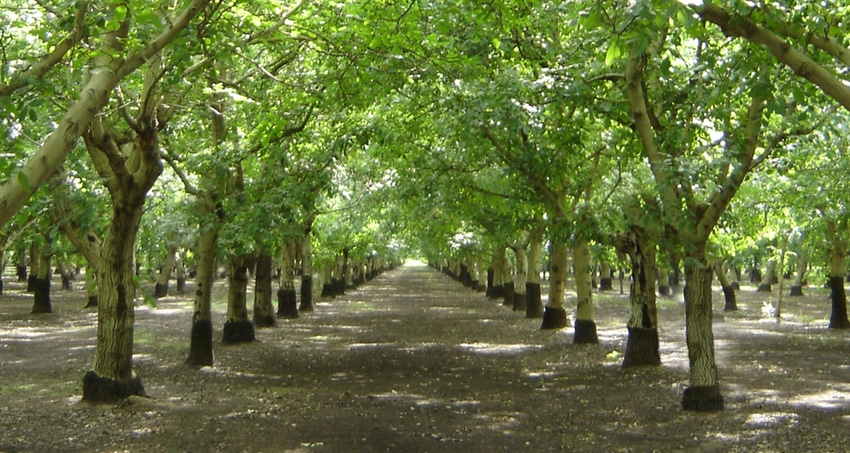August 11, 2020

California's walnut industry will use a $1 million state grant to expand the use of low-risk pest control practices in the Central Valley over a three-year period.
A project team led by Sara Tiffany of Community Alliance with Family Farmers will establish six 40-acre demonstration sites throughout the Sacramento and San Joaquin Valleys, where pheromone mating disruption and biological control programs will be used to manage a suite of major walnut pests, including codling moth and navel orangeworm, according to a state news release.
These key pests have historically been controlled using chlorpyrifos and other broad-spectrum insecticides, but regulation of these chemistries is increasing -- chlorpyrifos is no longer available in California – due to concerns about their impact on human health and the environment.
More widespread adoption of alternative, non-spray practices will help protect the health of California’s residents and sensitive ecosystems, while ensuring food supply chains remain secure, the state Department of Food and Agriculture asserts.
"The goal of the revitalized Biologically Integrated Farming Systems grant program is to provide outreach of innovative, biologically integrated plant-based farming systems that reduce chemical insecticide inputs," the CDFA's website explains. "CDFA is responsible for supporting agricultural production in California by fostering innovative, efficient and scientifically sound practices. Projects from this program should demonstrate IPM-based alternative pest management options that focus on economical and efficacious biological and cultural pest management techniques that allow growers to maintain yields and quality."
Avoiding negative impacts
Biologically integrated farming encourages particular existing biological relationships within a farm system to reduce or avoid potential negative impacts of the farm’s operations on habitats, natural resources, and communities, the University of California's Sustainable Agriculture Research and Education Program (SAREP) explains.
The original BIFS program ran from 1995 to 2010 with a focus on fostering farmer-to-farmer information exchange and on-farm demonstration of integrated farming practices, the CDFA notes. Originally a project of Community Alliance with Family Farmers (CAFF), it transitioned to a grant program administered by SAREP at UC Davis using state and federal funds.
Gov. Gavin Newsom revived the program under the CDFA's Office of Pesticide Consultation and Analysis budget to help growers move away from chlorpyrifos.
The BIFS project team, which includes CAFF employees, UC Cooperative Extension specialists and the California Walnut Board, will engage in extensive outreach activities to promote the adoption of biologically integrated practices and foster farmer-to-farmer information exchange, according to the state's release.
A review committee composed of scientists from the U.S. Department of Agriculture, University of California, California State University, state government, a nonprofit environmental advocacy organization and a private pest control advisor.
About the Author(s)
You May Also Like






